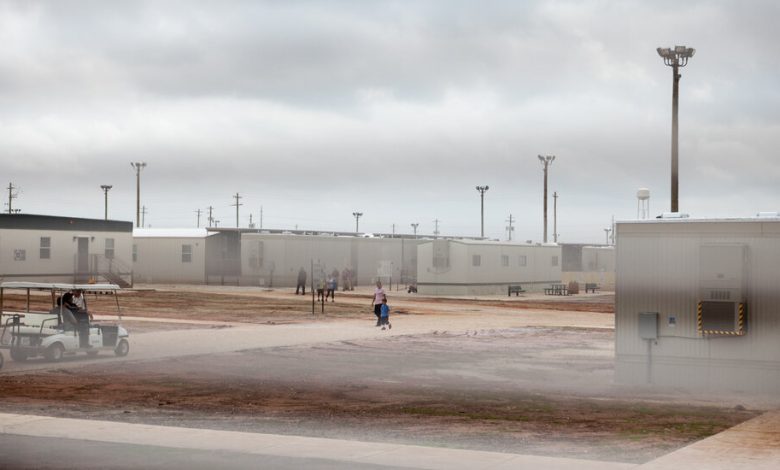Long Before Trump, Immigrant Detention Was Arbitrary and Cruel

IN THE SHADOW OF LIBERTY: The Invisible History of Immigrant Detention in the United States, by Ana Raquel Minian
Completely uncontroversial statements about Donald J. Trump are vanishingly rare these days, but I think I can propose one: Trump isn’t exactly known for his powers of attention. During his four years as president, it was nearly impossible for him to focus on any policy question for very long — something that even his most committed supporters would be hard-pressed to deny.
But amid all the mind-wandering, flip-flopping and havoc-wreaking, there happened to be one node of unwavering consistency: a fixation on borders and immigration that was remarkably tenacious. Build walls, ban Muslims, separate families — Trump has suggested he would do all that again and more if he wins in November. His language is also becoming ever more violent. He now vilifies migrants as “animals” who are “poisoning the blood of our country.”
This escalation dovetails with Trump’s demonstrated predilections. He has always been drawn to the soft spots in the democratic system, to those areas that would allow him to wield the kind of absolute power he insists he is entitled to, and immigration policy is perhaps the softest target of all.
Unlike American citizens, who are protected by constitutional rights (and have legal recourse if those rights are violated), immigrants are exceptionally vulnerable to government power. Even the right to due process is inconsistently applied to them, and sometimes denied altogether. Migrants have been locked up without explanation. They have been locked up for being “likely to become a public charge.” They have been locked up and never accused of committing any crime at all.
As Ana Raquel Minian explains in a new book, “In the Shadow of Liberty: The Invisible History of Immigration Detention in the United States,” the American government has a long record of detaining migrants in places that are, legally speaking, black sites. “Every day in the heart of the self-described ‘greatest democracy on earth,’” Minian writes, “people are incarcerated without charges for indefinite periods of time, under horrific conditions and without basic constitutional protections.”